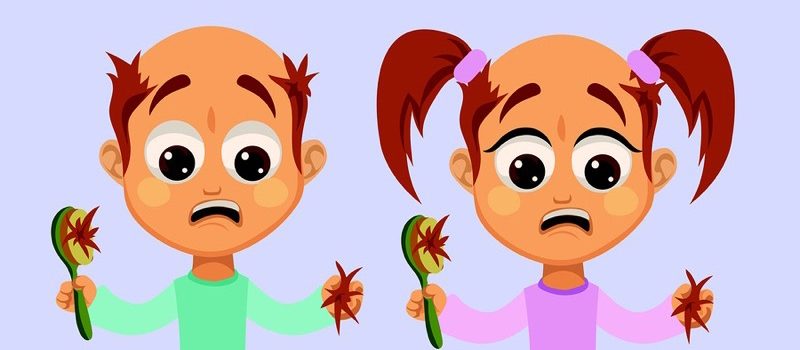Hair loss is a common concern that can affect individuals of all ages and genders. While it is a natural part of the hair growth cycle to lose some strands, excessive hair loss can be distressing. In this article, we'll delve into the various causes of hair loss, preventive measures, and effective remedies to promote healthy hair growth.
*1. Types of Hair Loss
A. Androgenetic Alopecia (Male and Female Pattern
Baldness)
Androgenetic alopecia is the most common cause of hair loss,
affecting both men and women. It is hereditary and usually occurs gradually,
leading to thinning hair and, eventually, baldness.
B. Telogen Effluvium
Telogen effluvium is a temporary form of hair loss triggered
by factors such as stress, illness, or hormonal changes. It causes a sudden
shedding of hair but is reversible with proper management.
C. Alopecia Areata
Alopecia areata is an autoimmune condition that results in
hair loss in patches. In severe cases, it can progress to total baldness, but
the hair may regrow.
*2. Common Causes of Hair Loss
A. Hormonal Changes
Fluctuations in hormones, especially during pregnancy,
childbirth, menopause, and thyroid disorders, can contribute to hair loss.
B. Medical Conditions and Medications
Certain medical conditions such as diabetes, lupus, and the
use of medications like chemotherapy drugs, antidepressants, and blood thinners
can lead to hair loss.
C. Genetics
Family history plays a significant role in determining
susceptibility to hair loss. If your parents or grandparents experienced hair
loss, you may be more prone to it.
D. Poor Nutrition
A diet lacking in essential nutrients, especially iron,
zinc, and vitamins A and D, can impact hair health and contribute to hair loss.
*3. Preventive Measures for Hair Loss
A. Balanced Diet
Ensure a well-rounded diet rich in proteins, vitamins, and
minerals. Include foods like fish, nuts, leafy greens, and eggs to promote hair
health.
B. Scalp Care
Maintain a clean and healthy scalp by regular washing and
using a mild, nourishing shampoo. Avoid excessive use of styling products that
may damage the hair.
C. Regular Exercise
Physical activity promotes blood circulation, including to
the scalp, which can contribute to healthier hair growth.
D. Stress Management
Practice stress-reducing activities such as meditation,
yoga, or deep breathing exercises to minimize the impact of stress on hair
loss.
*4. Remedies for Hair Loss
A. Topical Treatments
Explore over-the-counter topical treatments containing
minoxidil, which can help stimulate hair growth. Consult with a healthcare
professional before use.
B. Nutritional Supplements
Consider supplements like biotin, iron, and vitamin D, as
advised by a healthcare provider, to address nutritional deficiencies
contributing to hair loss.
C. Natural Remedies
Some individuals find relief from hair loss through natural
remedies like aloe vera, coconut oil, or onion juice. While these may help,
results vary, and scientific evidence is limited.
*5. Seeking Professional Help
A. Dermatologist Consultation
If hair loss persists or worsens, consult with a
dermatologist or healthcare professional to identify the underlying cause and
determine a tailored treatment plan.
B. Hair Restoration Procedures
Advanced cases of hair loss may benefit from procedures such
as hair transplants or laser therapy. These interventions should be discussed
with a qualified specialist.
Conclusion
Understanding the causes of hair loss is the first step
toward effective management. While some factors may be beyond control, adopting
a healthy lifestyle, seeking professional guidance, and exploring suitable
remedies can contribute to maintaining a vibrant and healthy head of hair.
In conclusion, hair loss is a common concern with various
causes and solutions. Embrace a holistic approach to hair care, addressing
underlying issues, and consult with professionals for personalized guidance.
Frequently Asked Questions
A. Can hair loss be reversed?
The reversibility of hair loss depends on the underlying
cause. Temporary conditions like telogen effluvium may be reversible, while
genetic factors may limit complete restoration.
B. Are natural remedies effective for hair loss?
Natural remedies can have varying degrees of effectiveness,
and results may differ between individuals. It's essential to approach them
with realistic expectations.
C. Is hair loss preventable?
While some causes of hair loss may be preventable, such as
maintaining a healthy lifestyle, certain factors like genetics may be beyond
prevention. Early intervention and proper care can mitigate the impact.
D. When should I seek professional help for hair loss?
If you experience persistent or severe hair loss, it's
advisable to consult with a dermatologist or healthcare professional. They can
identify the underlying cause and recommend appropriate treatments.
E. Can stress cause hair loss?
Yes, stress is a common contributor to hair loss. Managing
stress through relaxation techniques and lifestyle adjustments can positively
impact hair health.


No comments:
Post a Comment